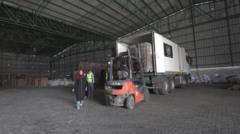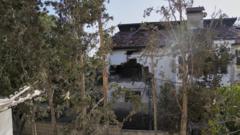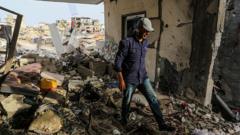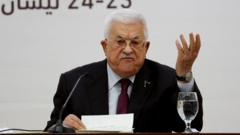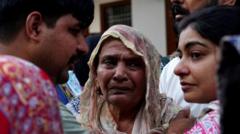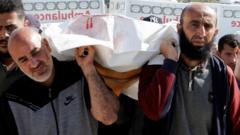On January 25, 2025, Israel executed the release of 200 Palestinian prisoners as part of a ceasefire agreement with Hamas, in exchange for four Israeli soldiers held captive. This development highlights the contrasting narratives surrounding the prisoners involved, with differing views between Israelis and Palestinians.
Israeli Government Releases 200 Palestinian Prisoners in Controversial Exchange

Israeli Government Releases 200 Palestinian Prisoners in Controversial Exchange
A significant release of Palestinian prisoners marks a complex moment in Israeli-Palestinian relations amid ongoing conflicts.
The prisoners were mainly released from Ofer Prison near Ramallah and a facility in Beersheba, with many serving life sentences for attacks against Israelis. In a stark display of differing perspectives, Israelis label these individuals as terrorists, while Palestinians regard them as freedom fighters resisting longstanding occupation.
Upon their release, large crowds of Palestinians gathered to welcome the prisoners in Ramallah, as families and friends rushed to embrace their loved ones. "We leave our jail but the price is high for our freedom,” expressed Mohammad Arda, an activist and released prisoner, reflecting on the loss experienced by other inmates’ families during his time in incarceration.
Previously, Israel had released 90 Palestinian prisoners—including minors and women—in exchange for three female hostages. A trend appears to be emerging as the Israeli government is now also liberating convicts of severe crimes, including murder.
As negotiations continue, over 1,500 additional Palestinian prisoners are expected to follow suit under the ceasefire accord, with Hamas committing to releasing 33 captives in return. Within this framework, around 70 prisoners are set to be expelled to areas controlled by Hamas in Gaza or sent abroad, a move seen by many as a way to provide safety for Israel while addressing Palestinians' calls for justice regarding their political prisoners.
This prisoner release operation sheds light on the ongoing complexities of the Israeli-Palestinian conflict, where each step in negotiations elicits varying reactions and reflects deep-rooted sentiments among the respective populations.
Upon their release, large crowds of Palestinians gathered to welcome the prisoners in Ramallah, as families and friends rushed to embrace their loved ones. "We leave our jail but the price is high for our freedom,” expressed Mohammad Arda, an activist and released prisoner, reflecting on the loss experienced by other inmates’ families during his time in incarceration.
Previously, Israel had released 90 Palestinian prisoners—including minors and women—in exchange for three female hostages. A trend appears to be emerging as the Israeli government is now also liberating convicts of severe crimes, including murder.
As negotiations continue, over 1,500 additional Palestinian prisoners are expected to follow suit under the ceasefire accord, with Hamas committing to releasing 33 captives in return. Within this framework, around 70 prisoners are set to be expelled to areas controlled by Hamas in Gaza or sent abroad, a move seen by many as a way to provide safety for Israel while addressing Palestinians' calls for justice regarding their political prisoners.
This prisoner release operation sheds light on the ongoing complexities of the Israeli-Palestinian conflict, where each step in negotiations elicits varying reactions and reflects deep-rooted sentiments among the respective populations.


